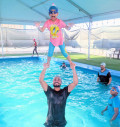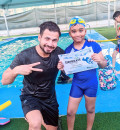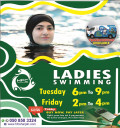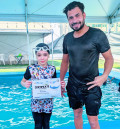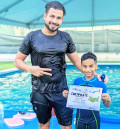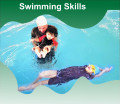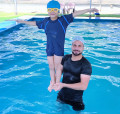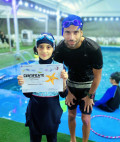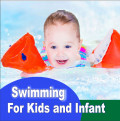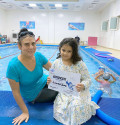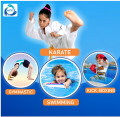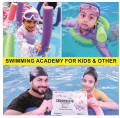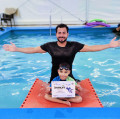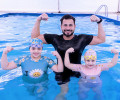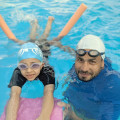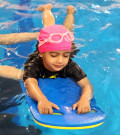
Producing confidence to new coming kids for swimming
2023-08-16 - SwimmingConfidence can indeed play a significant role in a child's ability to learn swimming, but it's not the only factor. Learning to swim involves a combination of physical skills, mental readiness, and the right learning environment. Here are a few points to consider:
Confidence: Confidence is crucial because it helps a child overcome fear and hesitation in the water. If a child believes they can learn to swim and trusts their instructor, they are more likely to engage in the learning process and practice the necessary skills.
Safety: It's essential for children to feel safe and supported in the water. Proper supervision, appropriate flotation devices (if needed),and a controlled learning environment contribute to a child's confidence.
Patience and Positive Reinforcement: Encouraging words, positive reinforcement, and celebrating small achievements can boost a child's confidence. Constructive feedback helps them understand that progress takes time and effort.
Physical Development: Physical coordination, strength, and motor skills play a role in swimming. A child's physical development can influence how quickly they grasp swimming techniques.
Learning Style: Children have different learning styles. Some might learn by watching, while others learn better through hands-on experience. Understanding a child's learning style and adapting teaching methods accordingly can help in their swimming journey.
Gradual Progression: Learning to swim is often more effective when broken down into smaller, manageable steps. Starting with basic water acclimatization, floating, and then progressing to strokes can help a child build skills gradually.
Parental Involvement: Parents' attitudes toward swimming can also affect a child's confidence. Encouraging parents to participate, if possible, or showing enthusiasm and support can positively impact a child's attitude toward swimming.
Fun and Play: Incorporating games and fun activities into swimming lessons can make the learning process enjoyable. When children associate swimming with playfulness, they're more likely to approach it with a positive attitude.
Individual Pace: Children learn at different rates. Some might take to swimming quickly, while others may need more time. It's important not to compare children's progress and to allow each child to learn at their own pace.
Consistency: Regular practice and consistent exposure to water contribute to a child's comfort and confidence in swimming.
In summary, while confidence is a significant factor in a child's ability to learn swimming, it's just one piece of the puzzle. A combination of confidence, a safe and supportive environment, positive reinforcement, appropriate instruction, and physical development all work together to help a child become a proficient swimmer.







.jpg)















































